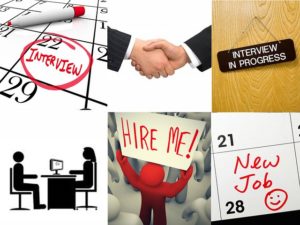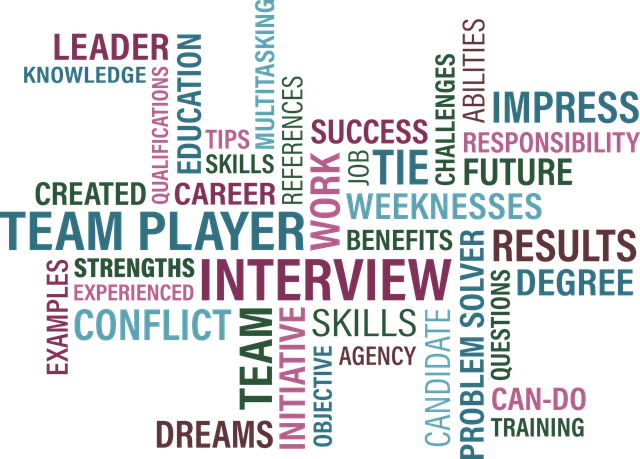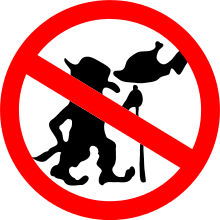Most of us have applied for a job.
The traditional application process starts off with the candidate seeing an ad placed by an employer for a position that the  candidate is interested in. The candidate follows the instructions for applying for the position, which usually involve a resume and/or an application. These are sent to the employer who reads them, and then narrows down their list of candidates based on what they’ve received.
candidate is interested in. The candidate follows the instructions for applying for the position, which usually involve a resume and/or an application. These are sent to the employer who reads them, and then narrows down their list of candidates based on what they’ve received.
Once the candidate list has been narrowed down, the employer requests an interview. The candidate will sit in front of the employer and the employer will ask questions, and the candidate will reply with answers that hopefully will please the employer. This process then narrows the list down again to the point of the employer choosing one candidate and offering them the position.
Sounds simple enough, right? But let’s look at some of the items that this process requires. First, the application and/or resume. Let’s be honest here. This application has to look good. After all, we’ve all heard the importance of the first impression. This piece of paper is your first impression. There’s nothing on it that is negative. In other words, if you were fired for constantly being late for a job, the reason you put for leaving will most likely be something along the lines of “Took position with Company Y”.
Applicants today know that companies have been told by their legal staff that they should not say anything negative when someone calls for a reference about a former employee. They should limit their information to the time the former employee worked there, and, if asked, if they would rehire the former employee. Anything more can open them up for a potential lawsuit.
The next phase of the process is the interview. If you know anything about a job interview, you know that you should be punctual, dress professionally, be polite, bring an extra copy of your resume, make eye contact, and make yourself look good.
That’s really what it boils down to. You want TO MAKE YOURSELF LOOK GOOD. You’re basically selling yourself. You have become a product that you would like the employer to buy.
Those who want to sell their products go to great lengths to make their product look good. Ever look at an ad for a hamburger? Looks great, doesn’t it? Yet when you arrive at the restaurant, the item you get in the bag or on your tray doesn’t quite look like the item in the ad. Here’s why:
You can do the same thing with yourself. You can hire someone who will write your resume for you. They will make it, and basically YOU, look great by what is written.
The end result is that you will be the one chosen by the employer to fill the position they have open.
Yet social media has changed all that. Social media allows the employer to see the REAL you. The REAL you who may have posted something that included several profanities. Or several disparaging remarks against different races or religions. Yup, you can be labeled a racist or homophobe or anti-Semite simply based on your social media content. Probably not something you’d put on your resume, but something the potential employer will find simply by looking at your Facebook feed or you Twitter account or your Instagram pictures.
Social media allows the employer to see the REAL you. The REAL you who may have posted something that included several profanities. Or several disparaging remarks against different races or religions. Yup, you can be labeled a racist or homophobe or anti-Semite simply based on your social media content. Probably not something you’d put on your resume, but something the potential employer will find simply by looking at your Facebook feed or you Twitter account or your Instagram pictures.
But “Wait” you say. “I don’t allow just anyone to look at my social media accounts.“. You don’t? That’s good. You shouldn’t. But what if the interview process includes them asking you to friend them? If you say no, you might be excluded from the list of applicants.
So let’s say that your posts are not bad in content. What about your friends’ posts? Aesop once said “You are known by the company you keep.” Guilt by association is another way to put that. The employer might think (correctly or incorrectly) that you feel the same way that your friends feel about certain topics.
Now, let’s go beyond the employer realm. Let’s go to the world wide view of social media. Governments today are using social media as a vetting tool to see if a particular individual should be granted access to their country. Are you interested in travelling to visit certain countries? Is your church planning a “tourist” trip to China? How about visiting Cuba for vacation? One wrong post in your Twitter feed and you’re not going to make that trip because their government may think that you’re going there for purposes other than what you’re stating and will not grant you entry.
Not planning to go on a trip anytime soon? How about applying for college? That college application is probably one of the most important pieces of paper (or online applications) that any person under 19 is ever going to fill out. They’ve worked on their grades to make that 4.0. They’ve studied hard to make that 32 on the ACT. They’ve done hundreds of hours of community service. Their community involvement is impeccable. And there seems to be a pattern in their social media feed that they are all about the legalization of marijuana and have every beer logo as their profile background. That should be an interesting conversation with the admissions counselor to that prestigious school.
They’ve worked on their grades to make that 4.0. They’ve studied hard to make that 32 on the ACT. They’ve done hundreds of hours of community service. Their community involvement is impeccable. And there seems to be a pattern in their social media feed that they are all about the legalization of marijuana and have every beer logo as their profile background. That should be an interesting conversation with the admissions counselor to that prestigious school.
But what about in the normal world? After college and after you already have a job. How can social media impact your then?
Yes. And Yes. And Yes one more time. People have lost their jobs because of social media. Money.com came up with 10 Mistakes people made on social media that cost them their jobs.
http://time.com/money/3019899/10-facebook-twitter-mistakes-lost-job-millennials-viral/
But there’s other ways that social media can impact your in negative ways.
Recently an individual began to post on a Facebook group that we belong to about local politics. This individual was very caustic in their posts, and began to attack people for their views. In the pre-Facebook days, this would be done in an anonymous way, since the individual would have a “screen name” which may or may not identify them as to who they are. Today, though, it’s pretty simple to identify who they are since they are using their name.
Within 15 minutes of doing some searching using paid and free tools, we were able to find out everything about this individual that they probably wouldn’t want everyone to know. One tool searches 61 social media sites in under 30 seconds and the results can be less than flattering. We were then able to inform those people who were engaging with this individual in the group that this individual was nothing more than an old fashioned troll.
Rule #1 about dealing with an internet troll is don’t feed the troll. In other words, don’t engage with the individual because all they want is attention.
Your information is out there. It’s not hard to find if you know where and how to look. Anything you post in social media can and will be used against you, as the following article shows.
http://www.computerworld.com/article/3179745/social-media/anything-you-post-can-and-will-be-used-against-you.html#tk.rss_security


